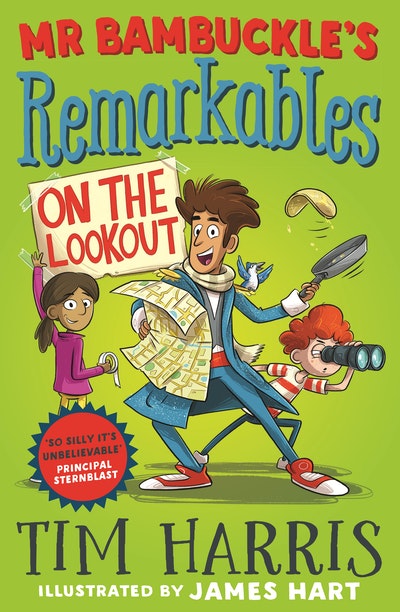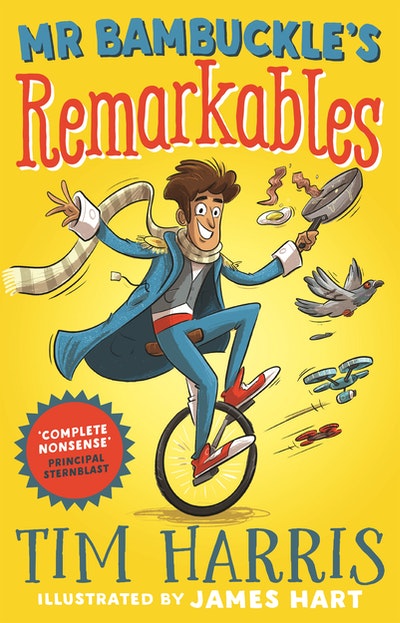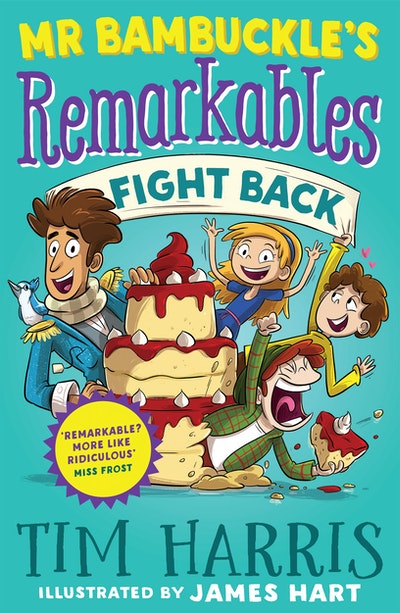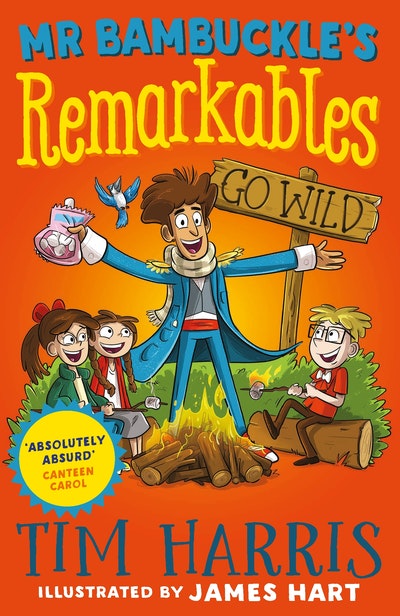5 tips from author Tim Harris & the outrageous Mr Bambuckle
The educational advantages of reading have been widely publicised for many years. As such, we have always been told to encourage our children to read. But is it getting harder to keep books in the hands of children when we are competing against screens?
As school goes back, here are five timely reminders of why 2019 should be the Year of the Book.
1. Reading improves concentration. This certainly deserves to be at the top of the list. Much research is being done about the impact screens are having on attention spans. And rightly so. Memes, GIFs, lightning-quick video editing, text messaging and social media platforms have all been designed to give us tiny snippets of information. We scan one thing, then quickly scroll on to the next. Reading a book is a completely different experience. Through a patient investment of time, reading a book can help strengthen a child’s concentration.
2. Books educate. They teach readers about the world around them. Screens can do this too, but knowledge is absorbed differently through books. Reading can create a long-lasting thirst for knowledge.
3. Reading enhances language skills. A variety of books will expose children to a variety of language techniques, broader vocabulary and varying sentence structure. This can have a wonderful flow-on effect to a child’s own use of language, both written and spoken.
4. Reading helps develop empathy. One of the pitfalls of social media is that it opens up a dangerous platform for bullying. Thankfully, there are some fantastic programs up and running that help educate school students about the effects of cyber bullying. Books can also fight this by helping readers develop empathy. As children read stories, they begin to reflect on characters and the impact their actions have. While reading won’t stop online bullying, it will certainly go a long way in prompting young people to think about their actions.
5. Books are great for the imagination. Screens can be too. But the problem with computers, televisions and phones is that the visuals are simply given to the viewer. Both picture books and chapter books gently nudge the reader to form or create their own landscapes, scenes and movements. A different side of creativity is sparked.
Mr Bambuckle’s Back to School Tips for Students:
1. Pack a good book in your bag.
2. Walk to school if you can. Or ride a unicycle. Exercise is great!
3. Fill spare moments in class with reading. It’s amazing how many pages you’ll get through on ‘pinched time’.
4. Be kind to your teachers and classmates. It will do your reputation no harm.
5. Ask questions.

Tim Harris was a primary school teacher for 15 years before becoming one of the most exciting children’s authors in Australia. He is an advocate for creativity and inspiring children to read. Tim is the author of the Mr Bambuckle’s Remarkables series, and creator of beloved fictional teacher Mr Bambuckle.

Mr Bambuckle is the teacher of the fictional Class 12B. Adored by his students for his unicycle riding, breakfast making and Mongolian welcome song. He is young, funny, clever, handsome, full of surprises, and in all ways mysterious. Best known for his work inspiring his students and delighting readers all over the country.
To find out more about the Mr Bambuckle's series, click here.

















